
Instructions for Using This Page
Each of the sections of this web page links to a resource that will help to remind you of this module of our Science, Philosophy and Spirituality course. Just click on the section, and you will be linked to the resource.
When you are reading an article from this website online, blocks of text in bold coloured type that make reference to an external source are “clickable”. If you click on them, you will be taken to the resource to which they refer.
Enjoy!
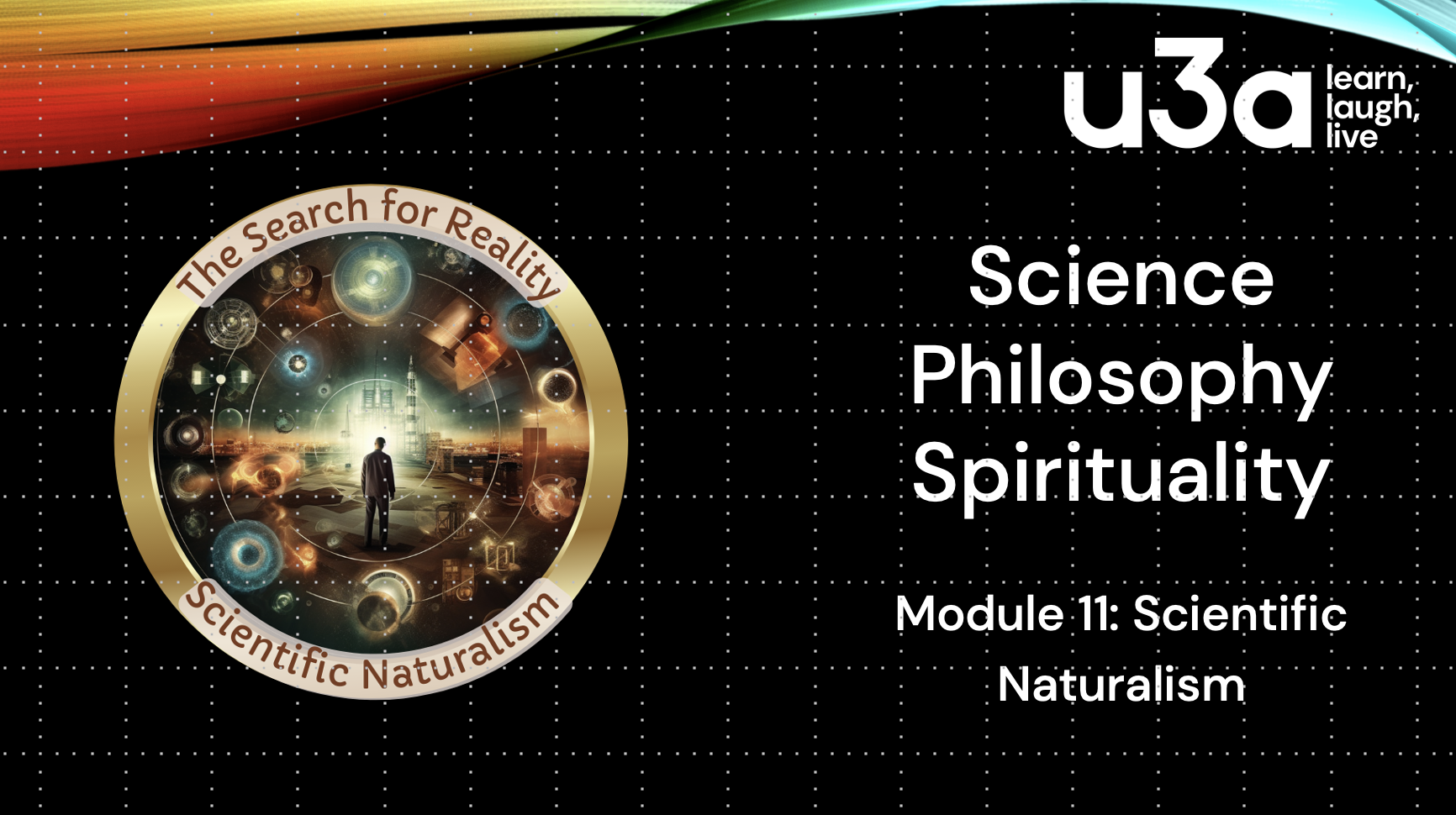
.PDF of the slides shown in the session.
These slides describe what scientific naturalism is, and show how its picture of reality has been gradually built up over a period of 2,500 years. Criticisms of the stance, and alternative ways of viewing reality are then considered.
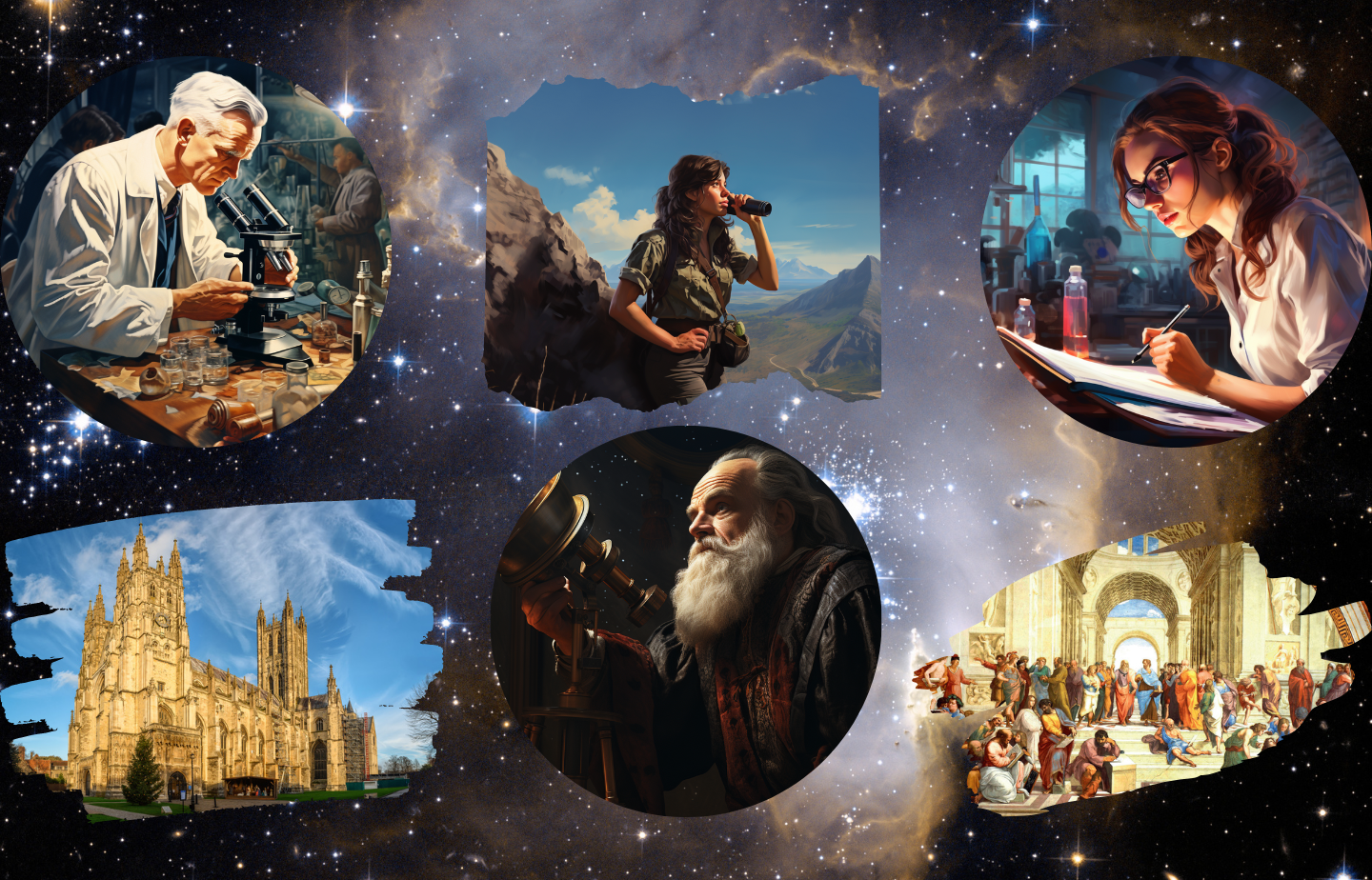
Article
Link to my article, “The Search for Reality: Steps in the Evolution of Scientific Naturaliosm”, which provides an overview of the philosophical insights and scientific discoveries which have led many scientists to the view that nothing exists beyond matter itself. Limitations of this perspective are briefly discussed.
Table of Milestones, Tenets of Scientific Naturalism, and its Main Criticisms
Link to a downloadable version of the handout provided at both workshops.
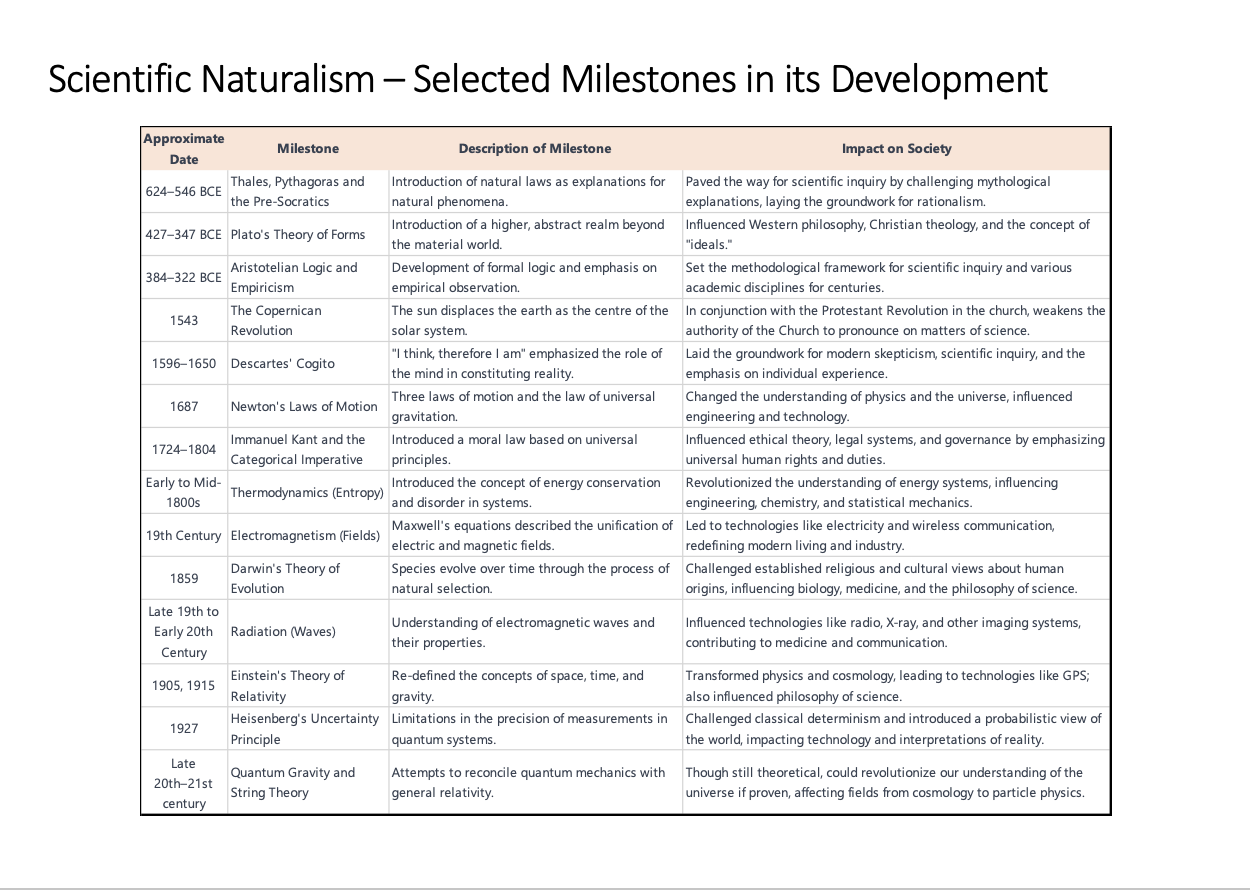
Selected Books Referred to in Workshop
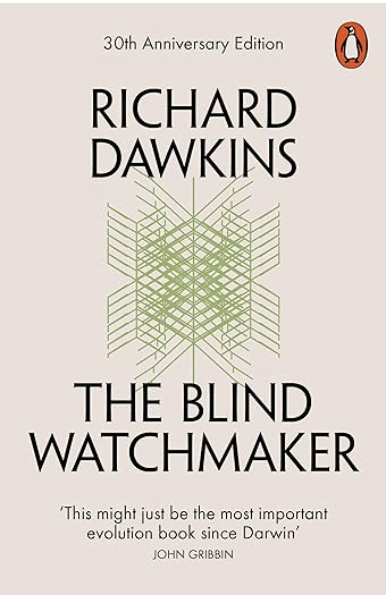
A widely-read best-seller from a prominent advocate for scientific naturalism and the new atheism. Dawkins writes clearly and passionately and knows his stuff where science is concerned. He is on much less firm ground in his criticism of Christianity.
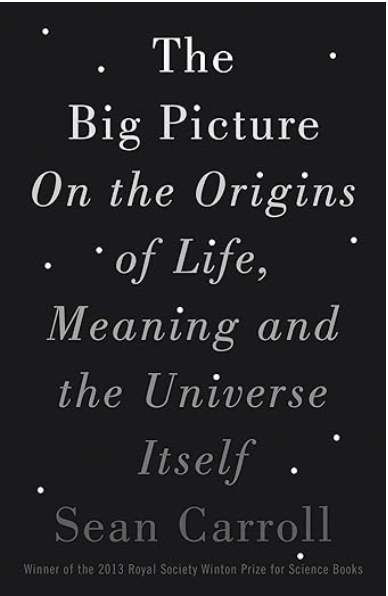
A sensitive and intelligent book from an eminent physicist. Carroll writes in a much less strident manner than Dawkins, and is much more respectful toward views that differ from his own. If you read only one book on this topic, this is the one I recommend.
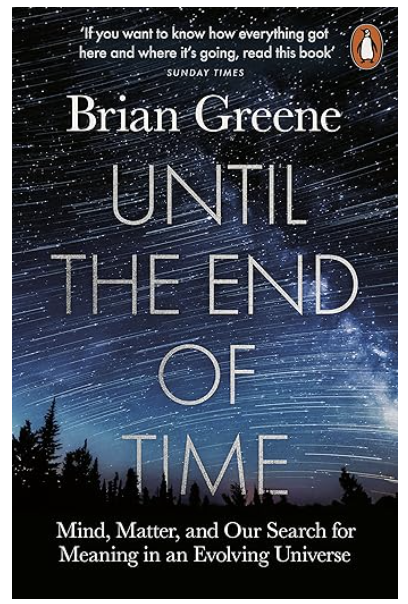
An alternative to Caroll’s book, Greene’s emphasises different aspects of the modern understanding of the universe. In particular, he projects what he sees as the inevitable end to time itself.
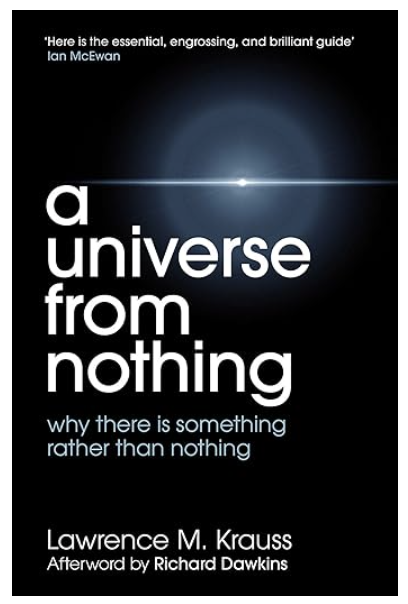
Krause is to Physics and Cosmology what Dawkins is to Biology and Genetics. They are also similarly passionate in their militant atheism and ignorant of the realities of religious beliefs or practices. The book’s subtitle makes it clear that Krause believes the answer to the age-old conundrum, “Why is there something rather than nothing?”, is to be found in Multiverse Theory and String Theory, not any form of theism.
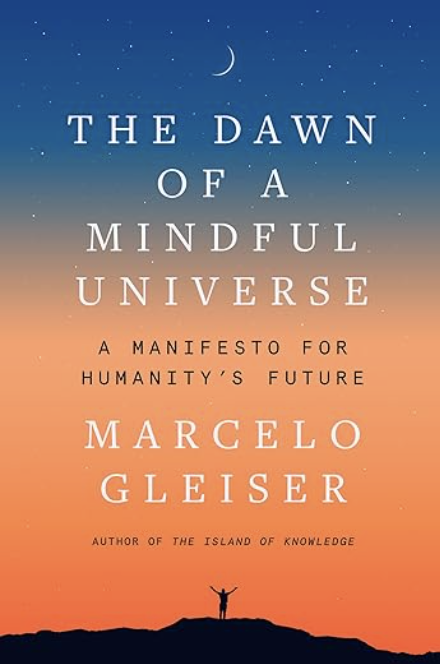
This remarkable book from a prominent Chilean cosmologist calls for intellectual humility on the part of scientists in the face of what we do not know. Gleiser draws attention to the large number of unique factors that have allowed complex life to develop on Earth and rejects simplistic notions that Earth is “just another insignificant planet”. A readable and thought-provoking book, but rather repetitive.
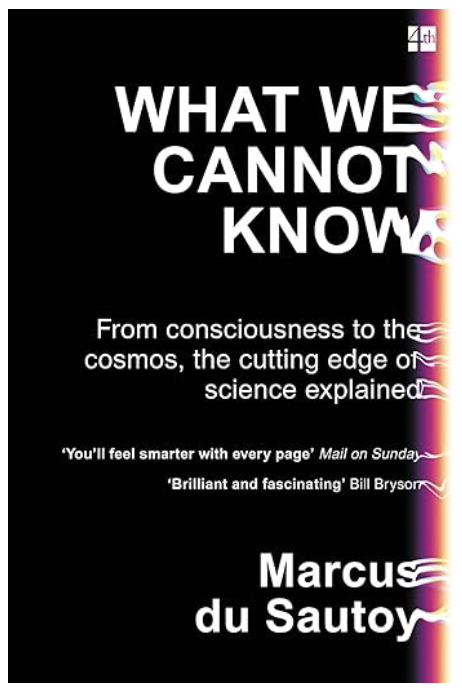
Is the universe infinite? Do we know what happened before the Big Bang? Where is human consciousness located in the brain? And are there more undiscovered particles out there beyond the Higgs boson? Eminent Mathematician de Sautoy explores whether there are limits to what we can discover about our physical universe?
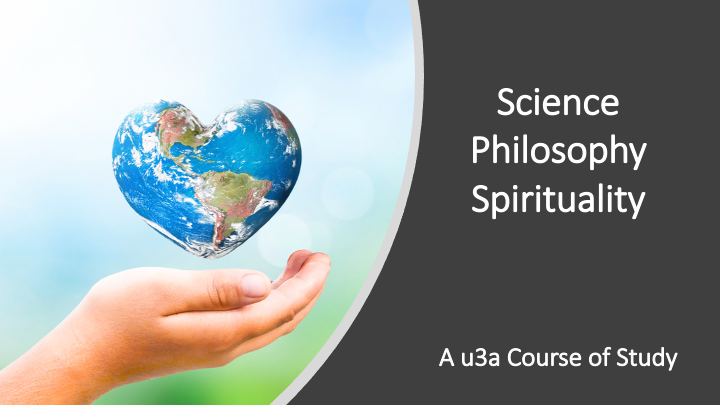
Link to Course Home Page
Click this link to return to the Home Page for Season 1 of the Shepway and District u3a Science, Philosophy and Spirituality programme.

